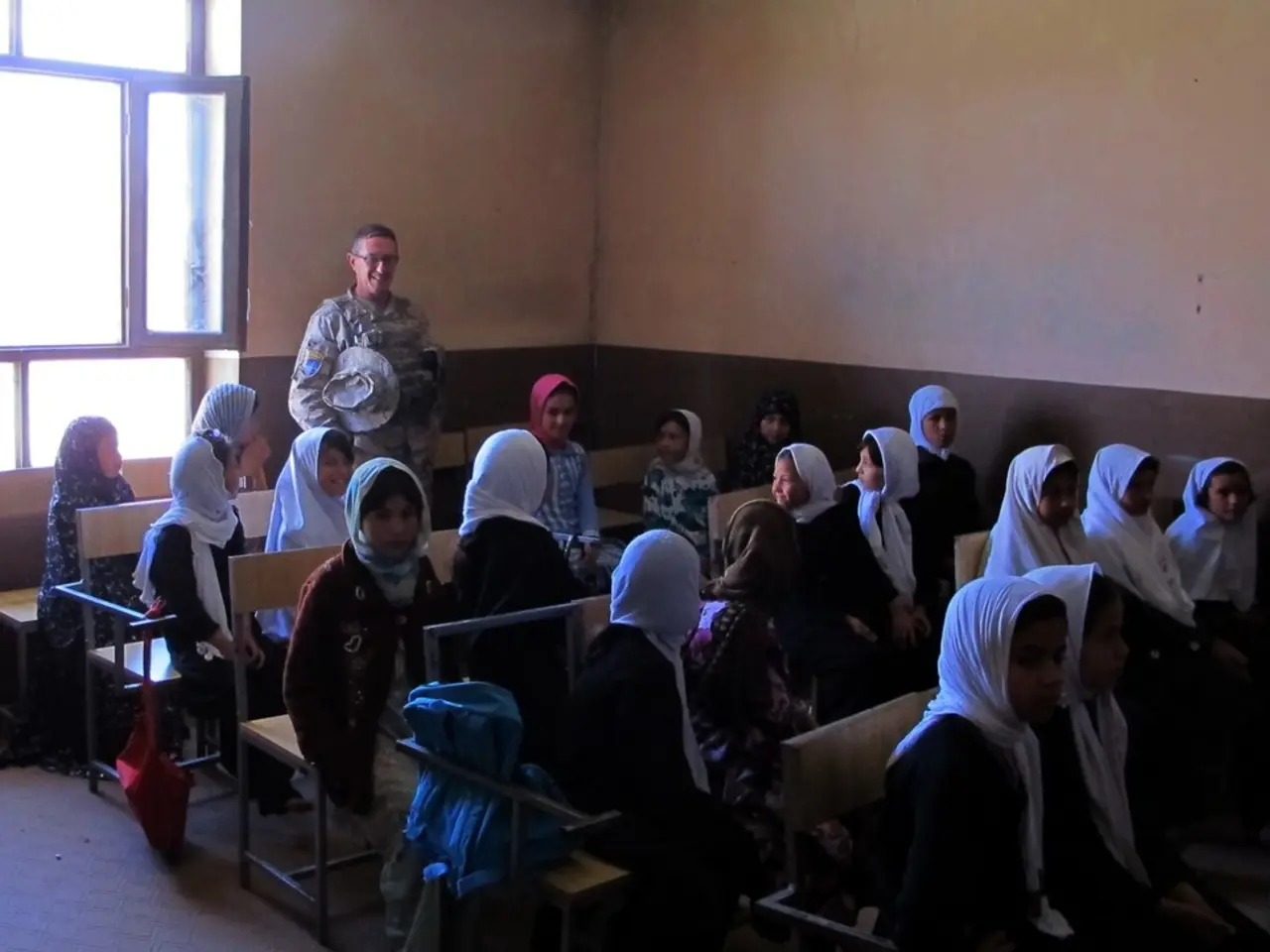Inquiry: Share your thoughts on the German educational system.
In a recent educational initiative, opinions about the German school system are being sought from people across the globe. The survey, designed to gather insights into the perceived advantages and disadvantages of the German school system compared to other countries, could potentially influence educational policies in Germany or inspire changes in other nations' school systems.
The German school system is known for its structured pathway, blending academic learning with practical experience, and a tiered secondary school system that separates students by academic ability early on. After primary school, students are typically tracked into one of three types of secondary schools based on ability and future career plans: Gymnasium (academic, prepares for university), Realschule (middle-level), and Hauptschule (basic vocational focus).
Germany is also renowned for its dual education system, a unique approach that combines vocational training with classroom instruction, allowing students to gain practical workplace skills alongside formal education. This coupling is less common in many other countries, where vocational training tends to be more separated from academic schooling.
The system is noted for balancing academic rigor with application and apprenticeships, particularly at the upper secondary level. This approach contrasts with education systems that emphasize purely academic knowledge without early workplace integration.
Historically, German schools have placed a heavy emphasis on Latin and academic formality, while physical education and even German language instruction were somewhat neglected. Though this has modernized, it reflects traditional educational values shaping the system's character.
One of the key advantages of the German system is its cost and accessibility. Compared to some other countries with expensive private schooling, most German schools (including Gymnasiums) are public and state-funded, making education generally affordable.
Attending a Gymnasium culminates in the Abitur, a qualification necessary to enter university. This qualification is quite standardized and central to higher education access, whereas other countries may have more diverse university entrance routes.
Children in Germany are required to attend school full-time for at least nine years, starting from the age of six. Schools in Germany are often maintained by the German state in which the child resides. The typical school day in Germany ends by 2pm, and young students often refer to their teachers casually.
It's important to note that the specifics of school hours and practices may vary between international schools in Germany. With exceptions, these schools may have different practices regarding uniforms and language of instruction.
The survey may help identify areas where the German school system excels or could improve compared to other countries. The survey results may provide insights into how the German school system is perceived by people from different cultural backgrounds.
The survey is likely to be part of a larger research project or initiative aimed at improving the quality of education worldwide. Given the comparison of school systems in various countries, the survey is possibly intended for a global audience.
Interested individuals can access the survey by clicking on the provided link if it does not display in the browser. The findings could potentially influence educational policies in Germany or inspire changes in other countries' school systems.
Read also:
- CEO Efe Cakarel of film platform Mubi addresses controversy regarding new investor and Israeli military ties, establishes advisory board and fund to safeguard artists under threat.
- Energy Minister of Malawi, Ibrahim Matola, heads Malawian delegation for a knowledge exchange on BESS (Battery Energy Storage Systems), a trip held in India. This exchange is backed by the Global Energy African Partnership Program (GEAPP).
- India's efforts to lessen reliance on China for scarce earth minerals
- Milestones Achieved by Park University in Its Initial Two Decades (2000-2020)








